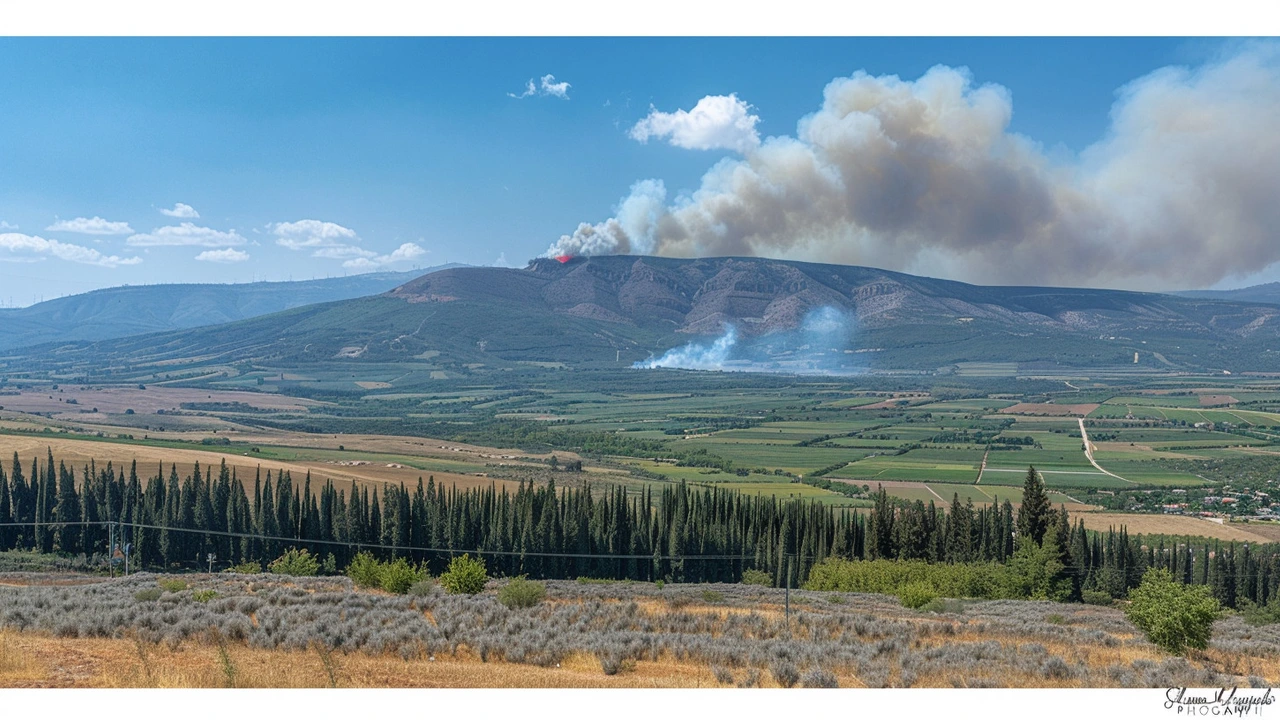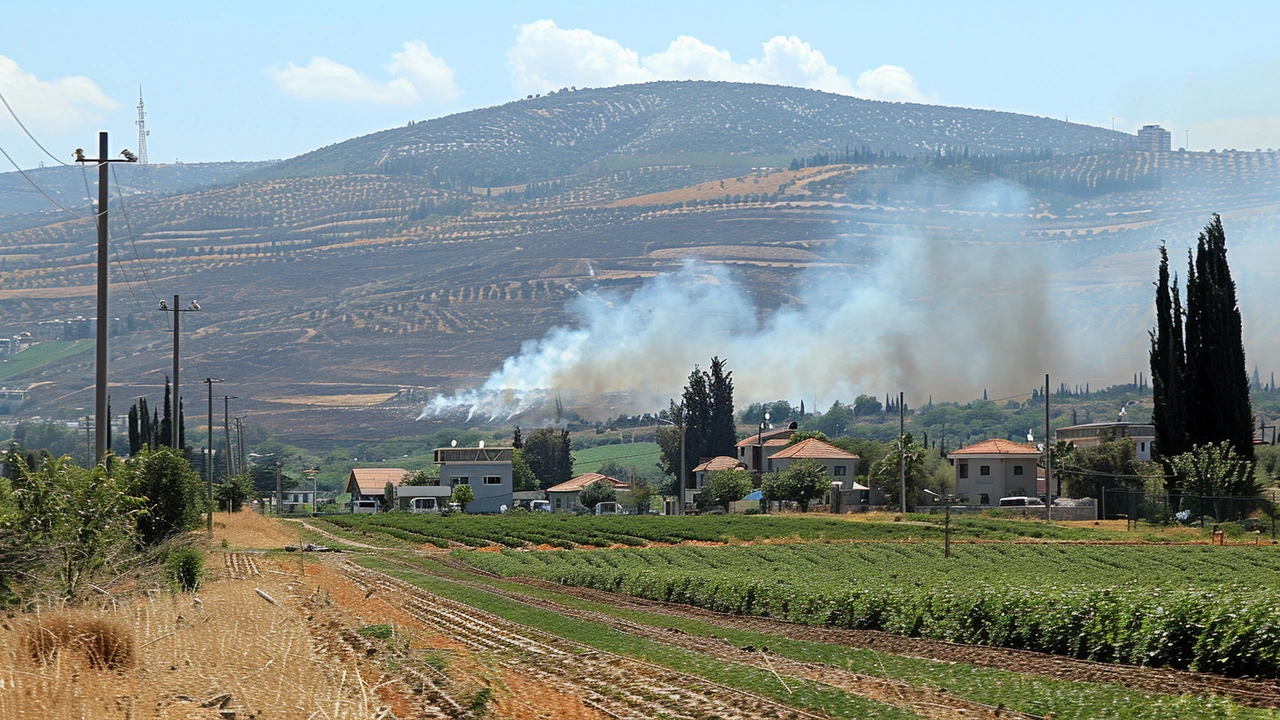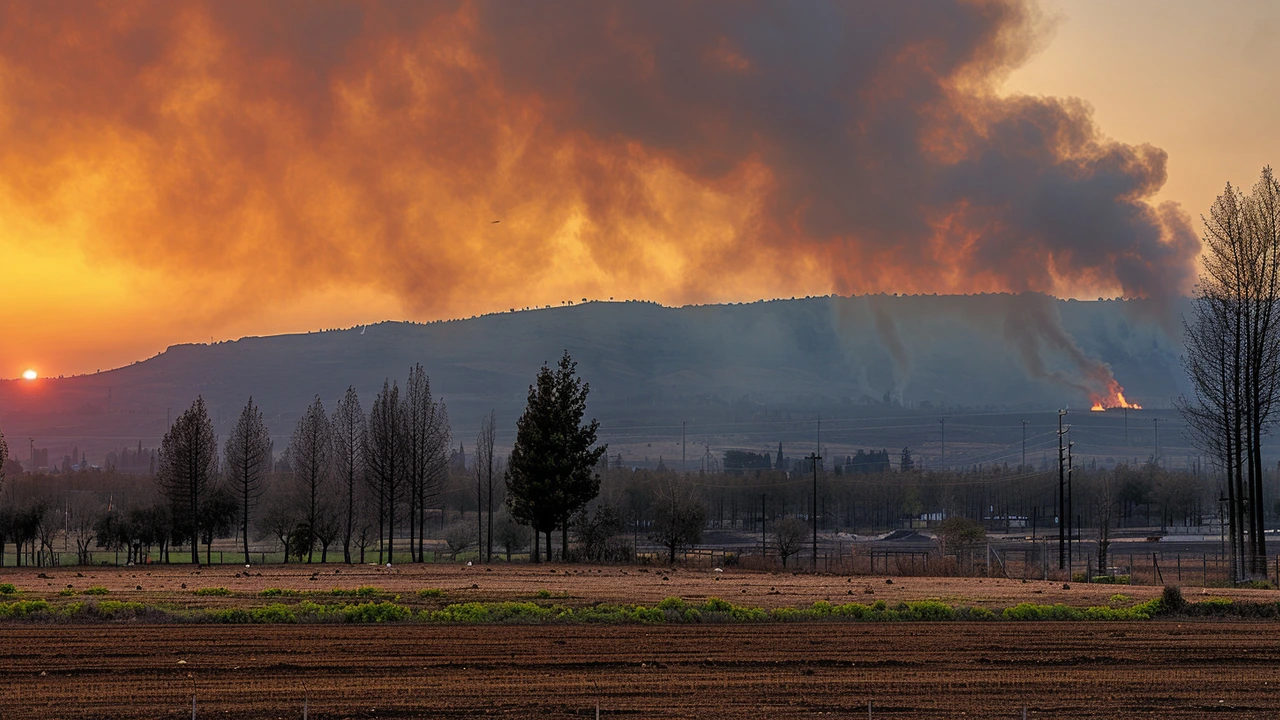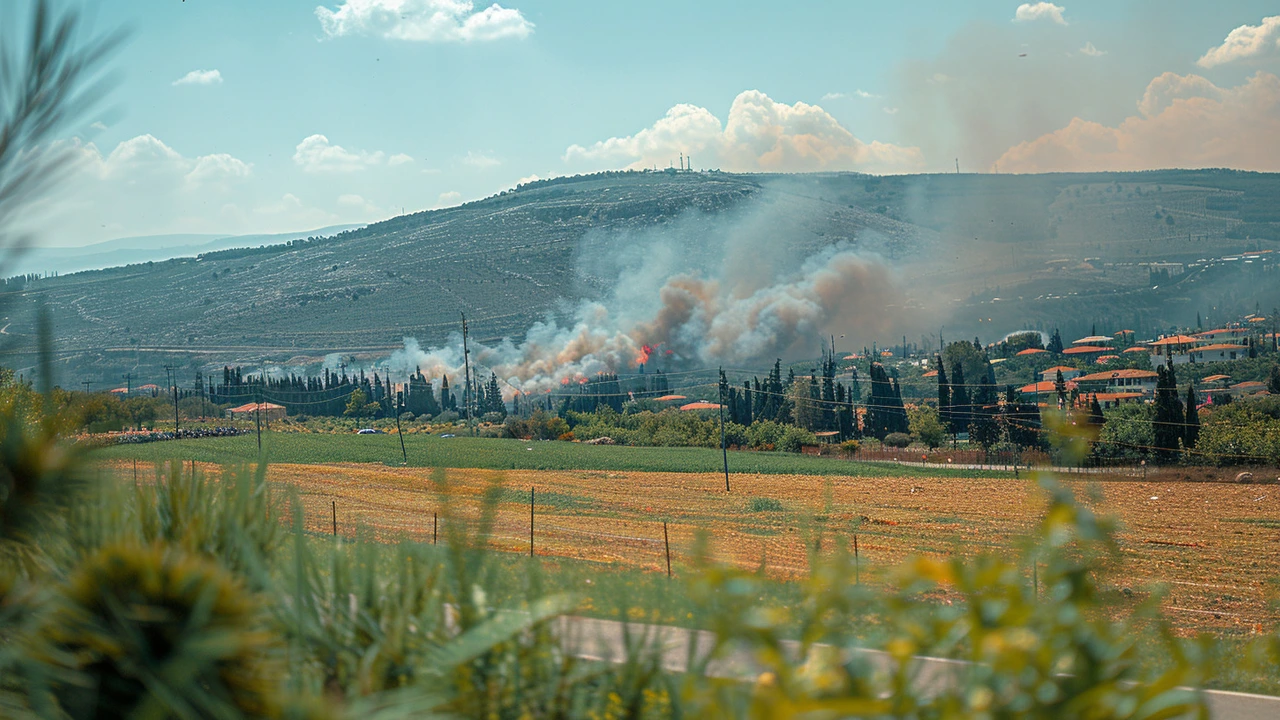Hezbollah's Leader Issues a Stern Warning
The leader of the Lebanese militant group Hezbollah, Hassan Nasrallah, recently escalated regional tensions by threatening Cyprus. The warning came amid growing indications that Cyprus could support Israel in a potential military conflict. Nasrallah's declaration follows a stark warning from Israel about an 'all-out war' in Lebanon. This escalation has put the small Mediterranean country, home to approximately 920,000 people, at the heart of a geopolitical storm.
Cyprus has had burgeoning ties with Israel, despite its non-NATO status. This relationship has included joint military exercises, one of which took place as recently as May 2023. Nasrallah's threat is not just a reaction to recent drills but a preemptive move against any substantial Cypriot support for Israel. This development is of significant concern for international observers, as it brings another potential flashpoint into a region already fraught with conflict.
Why Cyprus is Strategically Important
Cyprus, situated between West Asia and Southern Europe, is more than just a vacation spot. Its strategic location makes it a crucial player in regional politics. The island has often served as a launchpad for military operations by various countries. Given its proximity to the Middle East, Cyprus’s involvement in any conflict in the region can have extensive repercussions. This is especially true in the context of Israel-Hezbollah tensions, which have a history of spilling over into broader conflict scenarios.
Despite the fact that Cyprus is not a member of NATO, it has participated in military drills with Israel. The training includes maneuvers aimed explicitly at battling Hezbollah. Some of these operations have taken place in collaboration with British bases located on the island.

The Complex Web of Alliances
International relations are rarely straightforward, and the situation involving Cyprus, Israel, and Hezbollah is no exception. Nasrallah perceives Cyprus’s close ties with Israel as a direct threat. Specifically, the Hezbollah leader is wary that Cyprus might lend military support, thereby tilting the scales in Israel's favor in the event of a conflict. This concern is not unfounded, given the recent military exercises focused on scenarios involving Hezbollah.
Moreover, Cyprus has also been active in humanitarian efforts, such as allowing ships carrying aid to Gaza to operate from its ports. These dual roles—as a strategic ally and a humanitarian actor—make Cyprus a significant player whose actions could influence the course of regional conflicts.
British Bases and Increased Military Activities
Adding another layer to this complex situation are the British military bases located in Cyprus. These bases have been increasingly involved in military operations in volatile regions like Syria and Yemen. According to some analysts, the ramped-up operations from these bases have not gone unnoticed by Hezbollah, further exacerbating tension.
Given this backdrop, Nasrallah’s threat appears to be a calculated move aiming to deter Cyprus from deeper involvement. By publicly naming Cyprus as a potential target, Nasrallah is testing the limits of its alliances and commitments. This threat serves as a stark reminder of how quickly the geopolitical balance can shift, drawing more players into the fray.

Geopolitical Repercussions
The potential involvement of Cyprus in any conflict between Israel and Hezbollah could have far-reaching implications. For one, it could affect the policies and stances of other EU member states, which might see the need to either support or condemn the island nation's involvement. These decisions could, in turn, affect EU foreign policy and military aid packages. Observers are closely watching to see how Cyprus navigates this increasingly complex landscape.
Add to this equation the involvement of non-EU actors like the British forces, and the situation becomes even more convoluted. Nasrallah’s warning might prompt other countries to reconsider their strategies and alliances, further complicating an already volatile situation.
The Humanitarian Angle
Despite the heavy focus on military alliances, it's crucial not to overlook Cyprus's humanitarian efforts. By facilitating aid to Gaza, Cyprus has shown a commitment to alleviating human suffering amid conflict. This has somewhat balanced its military engagements, portraying the island nation as both a strategic ally and a humanitarian actor. However, Nasrallah's threat places a cloud over these efforts, indicating that even humanitarian actions can come with high risks in such a tense geopolitical landscape.

Moving Forward
As tensions continue to escalate, Cyprus finds itself at a crossroads. Its decisions in the coming days and weeks will be closely scrutinized by both allies and adversaries. With Nasrallah making clear that no ally of Israel is off-limits, Cyprus must weigh its options carefully. Will it continue its military collaborations with Israel and the West, or will it seek to distance itself to avoid becoming a direct target?
The world is watching, and whatever path Cyprus chooses will likely set a precedent for how small but strategically significant countries navigate the treacherous waters of regional conflicts. In the meantime, the island nation remains on high alert, caught between its alliances and the ever-present threat of becoming embroiled in an all-out war.

Jay Bould
June 22, 2024 AT 17:36Nasrallah’s recent warning certainly adds a new layer to the already complex tapestry of Mediterranean politics. As someone who loves seeing cultures interact, I think Cyprus has a unique role that goes beyond just military drills. Its position between Europe and the Middle East gives it a chance to be a bridge rather than a target. Hopefully the island can navigate these waters with wisdom and keep the focus on cultural exchange and peace.
Mike Malone
June 25, 2024 AT 01:09The recent admonition issued by Hezbollah’s commander, Hassan Nasrallah, against the Republic of Cyprus invites a profound contemplation of the intricate tapestry of regional security dynamics that have long pervaded the eastern Mediterranean. One must first appreciate that Cyprus, despite its non‑NATO status, has cultivated a series of bilateral and multilateral engagements that are emblematic of a broader strategic calculus employed by small states seeking relevance amidst great‑power rivalries. These engagements encompass not only joint maritime patrols and aerial exercises with Israel but also the hosting of British sovereign base areas, which in turn serve as logistic nodes for operations extending far beyond the island’s immediate horizon. Consequently, any threat articulated by a non‑state actor such as Hezbollah necessarily reverberates through multiple layers of diplomatic, military, and humanitarian considerations. From a philosophical standpoint, the notion of deterrence employed by Nasrallah can be perceived as an embodiment of the ancient realist maxim that power seeks to pre‑empt perceived encroachments before they materialize into tangible conflict. Yet, the efficacy of such a strategy remains contingent upon the willingness of the threatened party to acquiesce or to galvanize its allies into a collective response that may either amplify or mitigate the intended coercive pressure. In the case of Cyprus, its historical position as a crossroads of civilizations has endowed it with both a symbolic and a practical capacity to influence outcomes that extend far beyond its modest population of under one million. The island’s participation in humanitarian corridors to Gaza, for instance, reflects a moral dimension that complicates any simplistic binary of ally versus adversary. When evaluating the potential repercussions of a punitive posture by Hezbollah, one must therefore weigh the asymmetric nature of the threat against the asymmetry inherent in the island’s diplomatic leverage. Moreover, the involvement of external actors, notably the United Kingdom, introduces an additional variable that may either serve as a deterrent to further escalation or, paradoxically, provide a conduit for proxy confrontations. Theoretical frameworks within international relations, such as the security dilemma and the concept of spillover, offer analytical lenses through which this emerging tension can be dissected. According to the security dilemma, actions taken by one state-or quasi‑state-to enhance its security can inadvertently degrade the security of another, thereby prompting a cycle of reciprocal armament. In the present scenario, Cyprus’s cooperation with Israel could be interpreted by Hezbollah as an existential affront, thereby justifying, in its own narrative, the articulation of a threat. Conversely, the principle of proportionality, which undergirds customary international law, would call into question the legitimacy of targeting a sovereign nation for merely engaging in defensive collaborations. Thus, the proportionality of Nasrallah’s proclamation ought to be examined not only in light of immediate tactical concerns but also within the broader moral architecture that governs the conduct of hostilities. Finally, the pragmatic calculus of regional actors-whether they will seek diplomatic mediation, bolster defensive postures, or pursue alternative avenues of engagement-will ultimately determine whether the island becomes a flashpoint or remains a peripheral observer in the unfolding drama.
Pierce Smith
June 27, 2024 AT 08:43While the geopolitical chessboard certainly feels tense, it is crucial to remember that dialogue and restraint often prove more durable than threats, especially for a nation as historically resilient as Cyprus. Peaceful engagement, bolstered by multilateral frameworks, can transform potential flashpoints into opportunities for cooperative security. By staying firm yet open, Cyprus can uphold its sovereignty while contributing to regional stability.
Abhishek Singh
June 29, 2024 AT 16:16Oh great another missile threat because some guy got bored of tweeting
hg gay
July 1, 2024 AT 23:49Hey, I hear you – it does feel like we’re stuck in a never‑ending drama where the stakes are higher than a late‑night pizza order 🍕. Let’s not forget that behind every headline there are real people hoping for safety and a chance to live without fear, and that’s why empathy matters more than sarcasm. Cyprus has shown incredible hospitality by helping deliver aid to Gaza, proving that compassion can coexist with strategic partnerships. 🙏 So while the rhetoric gets louder, maybe we can all take a breath, focus on humanitarian values, and encourage leaders to seek solutions that protect lives rather than threaten them. 🌍
Owen Covach
July 4, 2024 AT 07:23Bright minds will paint peace with bold strokes, not with hollow bluster.